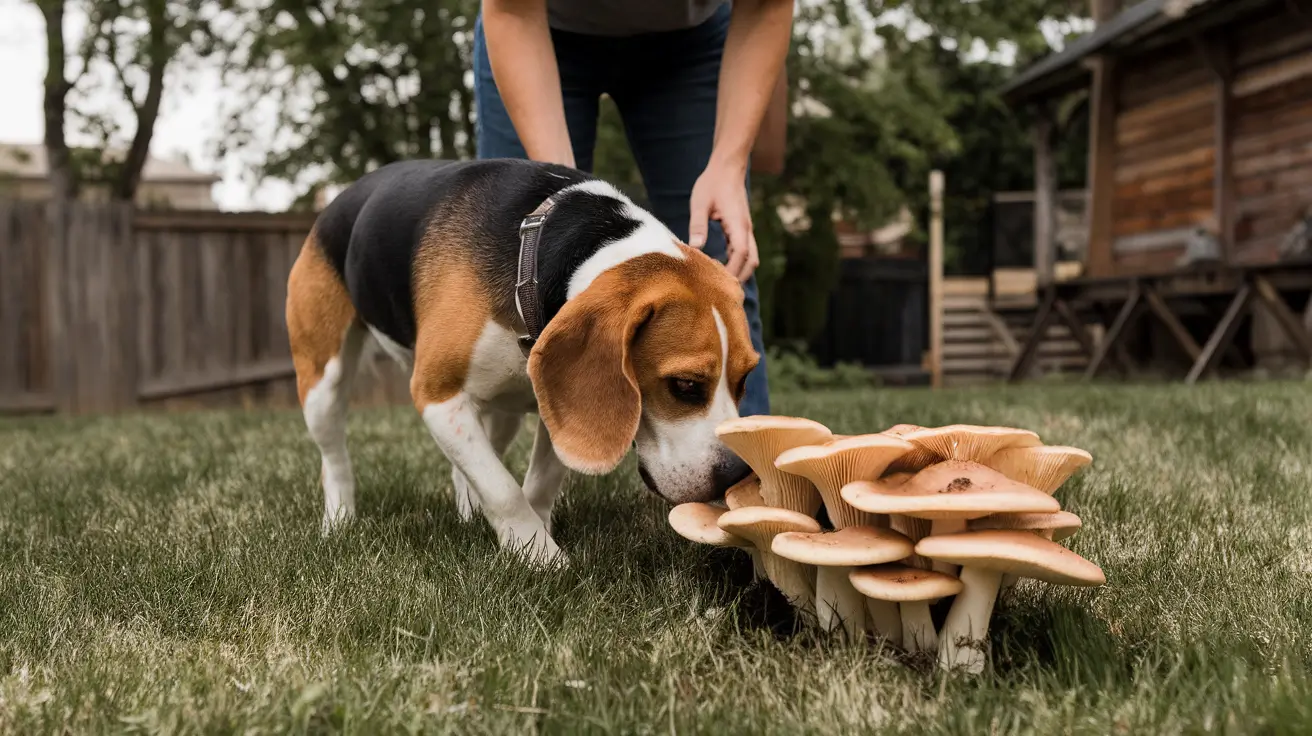Introduction to Mushroom Safety for Dogs
Understanding mushroom safety for dogs is crucial for every pet owner. Mushrooms, both wild and store-bought, can pose varying degrees of risk to dogs. While some mushrooms are safe and non-toxic, others can be highly poisonous and dangerous. Knowing the difference is essential to ensure the well-being of your furry friend.
Understanding Mushroom Types
Store-Bought Mushrooms
Store-bought mushrooms, such as white button, shiitake, and portabella, are generally safe for dogs to eat. These mushrooms do not contain toxins harmful to dogs, making them a safer choice compared to their wild counterparts. However, it's important to note that while these mushrooms are non-toxic, they do not offer significant nutritional benefits for dogs. When sharing store-bought mushrooms with your dog, ensure they are washed thoroughly, prepared plain, and cut into small pieces to avoid choking hazards.
Wild Mushrooms
Wild mushrooms present a significant risk to dogs due to their potential toxicity. Many wild varieties can be poisonous, and it's crucial to prevent your dog from coming into contact with them. When outdoors, whether hiking or in your backyard, monitor your dog closely to ensure they are not sniffing or eating wild mushrooms. The unpredictability of wild mushrooms makes them a serious health threat to dogs.
Identifying Toxic Mushrooms
Common Toxic Varieties
Certain wild mushrooms are particularly harmful to dogs. Notable toxic varieties include the death cap, death angel, false parasol, funeral bell, false morel, and fly agaric. These mushrooms are found throughout the U.S. and can cause severe health issues if ingested by dogs.
Signs of Toxicity
Symptoms of mushroom poisoning in dogs can vary but often include lethargy, diarrhea, seizures, vomiting, abdominal pain, weakness, loss of motor control, jaundice, and in severe cases, coma and death. The onset of symptoms can range from 15 minutes to 24 hours after ingestion. Toxicity can lead to liver and kidney failure if not treated promptly, underscoring the importance of early intervention.
Immediate Actions in Case of Ingestion
When to Seek Veterinary Care
If your dog ingests a mushroom, it is vital to contact a veterinarian immediately, even if symptoms are not yet apparent. Quick action is crucial in preventing serious health consequences.
What to Bring to the Vet
When visiting the veterinarian, bring a sample of the mushroom your dog ingested, if possible. This can assist the veterinary team in identifying the mushroom type and determining the most effective treatment plan.
Treatment Protocols for Mushroom Poisoning
Emergency Procedures
In cases of mushroom ingestion, veterinarians may induce vomiting if the mushrooms were consumed within the last two hours. Activated charcoal may also be administered to bind toxins and neutralize stomach acids. However, if clinical signs are already present, inducing vomiting may pose a risk of aspiration pneumonia.
Supportive Care
Supportive care is essential in managing mushroom poisoning. Fluid therapy helps reduce toxin levels in the liver and kidneys, while medications can alleviate symptoms such as vomiting, diarrhea, muscle twitching, and seizures. Hospitalization and IV fluids may be necessary for severe cases or when the mushroom type is unknown.
Prevention Strategies
Supervision and Environment Management
Preventing mushroom ingestion starts with vigilant supervision when dogs are outdoors. Regularly check and remove wild mushrooms from your yard to minimize risk.
Safe Feeding Practices
If you choose to include mushrooms in your dog's diet, ensure they are store-bought and prepared plain. Avoid additives like salt, oils, garlic, and onions, which are harmful to dogs. Mushrooms should only be an occasional treat, comprising no more than 10% of your dog's overall diet.
The Role of Early Diagnosis
Importance of Timely Intervention
Early diagnosis and intervention can significantly improve the prognosis for dogs affected by mushroom poisoning. Quick treatment can mitigate severe outcomes, such as neurological symptoms and organ failure.
Monitoring Post-Ingestion
After a mushroom ingestion incident, follow-up care is crucial. This may include ongoing bloodwork to monitor liver and kidney function for several days post-ingestion, ensuring any lingering effects are addressed promptly.
Conclusion
Mushrooms, particularly wild varieties, can pose a significant threat to your dog's health. By understanding the risks, supervising outdoor activities, and seeking immediate veterinary care when necessary, you can protect your dog from the dangers of mushroom poisoning. Stay vigilant, take preventive measures, and consult your veterinarian regularly to keep your furry companion safe and healthy.






